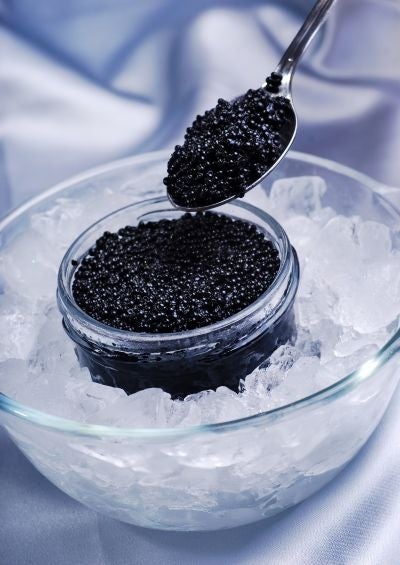In another addition to their list of biggest and splashiest, the desert city of Abu Dhabi is closer to building the world's largest caviar farm after two dozen live sturgeon were flown in last month.
The fish were flown in from Frankfurt and arrived at the world's largest aquaculture plant in Abu Dhabi, a new 60,000 square meter facility that is expected to produce 32 tons of caviar a year.
The notion of building a caviar market was an audacious and ambitious one for a desert city. But as appetites for luxury goods continue to climb in this affluent city - Abu Dhabi has one of the highest GDPs in the world thanks to its oil and gas reserves - spiking demand for one of the most decadent food products was destined to follow.
The project is a joint partnership between Bin Salem Holding and German company United Food Technologies which specializes in aquaculture technology around the world. In addition to being the first plant of its kind in the Middle East, it's also the largest recirculation plant worldwide.
The plant is expected to produce its first batch of premium caviar by the end of the year.
Meanwhile, an alarming report from the International Union for Conservation of Nature last year said that 85 percent of sturgeon - one of the oldest families of fishes in existence - are at risk of extinction making them the most threatened group of animals on their IUCN Red List of Threatened Species.
The report singled out the insatiable appetite for the fish's valuable roe and caviar for pushing the species - which has been around for 250 million years - to the brink of extinction.
The report also listed the prized Beluga sturgeon in the Caspian Sea as critically endangered for the first time due to unrelenting fishing for their black caviar. Their caviar can fetch up to $10,000 (€7,000) per kilogram.

Join our commenting forum
Join thought-provoking conversations, follow other Independent readers and see their replies
Comments